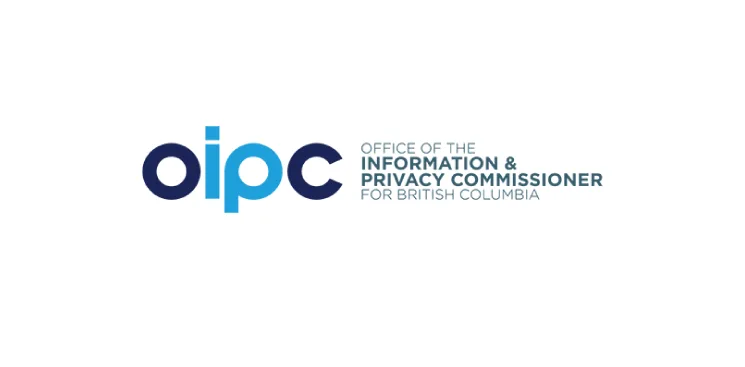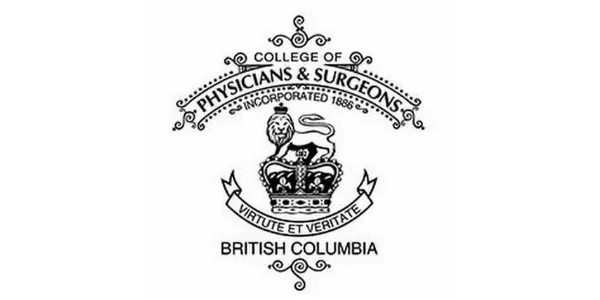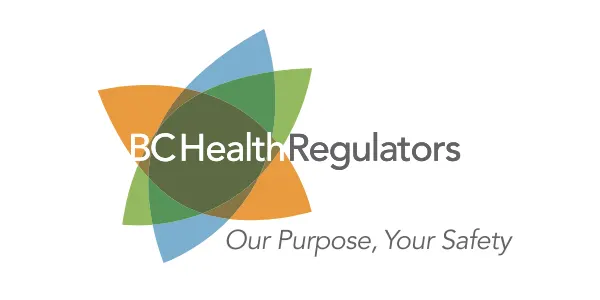
Am I entitled to access my medical records?
It can be surprisingly difficult for the average person to access their medical records. Yet under BC law, this information is yours. Outside of exceptional circumstances, you have a right to see it. Learn your rights in accessing your medical records, and how to go about getting access to your records.
What you should know
“Over the past couple years my heart condition has been getting worse. I’ve been seeing my regular doctor and two specialists. I was getting confused tracking all the tests and medications. I decided to order my medical records. I had to pay a small fee, but now I have a copy of all my records that I can refer to.”
– Bruce, North Vancouver, BC

Under BC law, health care providers are required to keep a record of the medical care they provide you.
The specific rules for recordkeeping vary depending on the type of health care provider involved. (See, for example, the rules applying to doctors, to registered psychologists, and to chiropractors.)
In general, however, these rules apply to all health care providers.
The records they keep must clearly explain the reason you visited them. They must also clearly describe:
any investigations ordered
the diagnosis made
any treatment, recommendation or medication
The records can be in paper or electronic format. If they are handwritten, they must be legible.
Records of your care also include copies of any correspondence between you and the health care provider relating to your health. As well, they include records from, or correspondence with, other health care providers that are in your chart.
Health care providers have a duty to make sure the information in your medical records is accurate and complete. If it’s not, you can ask them to correct it. (See how to fix a mistake in your medical records.)
The rules for specific health care professions
There are more than 20 regulated health care professions in BC. Doctors, dentists, optometrists, therapists and other health care professions each have their own rules for professional standards, including how they are to keep records. The BC Health Regulators website links to rules for each type of provider.
In general, your doctor or other health care provider must let you see the information in your medical records. Unless, that is, they believe doing so might put you or somebody else at risk. (There are some other very specific exceptions, explained in the next section.)
The information in those records is yours. However, the physical records are not. They belong to whoever created them — the hospital, doctor, or other health care provider. As a result, you are entitled to receive a copy of the records, but not the original. You may have to pay a fee for a copy of your medical records. This is explained below.
Get copies of test results
Every time you go for a medical test, ask for a copy of the results. That way, you can put together your own medical record and avoid having to pay for a copy.
In a few specific circumstances under BC law, a health care provider or hospital may refuse to let you see your medical records.
When access can be denied
A health care provider must deny you access to your medical records if disclosing the information:
could threaten the physical or mental health or safety of another person,
could cause immediate or grave harm to your physical or mental health or safety,
would reveal personal information about another person, or
would reveal the identity of someone who provided confidential personal information about another person.
As well, a public body like a hospital or health authority must deny you access to your medical records if letting you see them would be harmful to law enforcement.
In addition, a provider can deny you access to your medical records if:
the information is protected by solicitor-client privilege (for example, it’s part of a legal opinion or a court case), or
the information was collected for an investigation that is ongoing, or
the information was collected in the conduct of a mediation or arbitration, or
disclosing the information would reveal confidential business information.
In some cases, a provider may restrict your access to some information in your medical records but let you see the rest.
If you are denied access
If a provider denies you access to all or part of your medical records, they must explain why. They must also tell you:
how to contact an employee who can answer your questions, and
that you may ask for a review of the decision within 30 days.
There are steps you can take to challenge a decision to deny you access to your medical records. We walk you through the steps below.
The underlying laws
There are two main laws in BC that set out your rights to your personal health information. One law applies to public bodies like hospitals and health authorities. The other law applies to health care providers in private practice such as family doctors and physiotherapists.
Under Canadian law, while the information in your medical records belongs to you, the physical records don’t. They belong to whoever created them. Usually, that’s your doctor, a hospital, or other health care provider.
In most cases, health care providers will allow you to see the information in your medical records for free. However, under BC law, providers are allowed to charge you a minimal fee for access to your records. (Hospitals and other public bodies like health authorities, on the other hand, aren’t allowed to charge you to access your own information.)
A minimal fee means one that just covers their costs to produce the record — no profit allowed. (Typically, that would include costs for copying and postage, or if the records are electronic, for printing and copying the records to a storage medium.) Health care providers are typically not required to provide the records in the format of your choosing.
When charging fees, a health care provider must give you a written estimate of the fee before they process the request. Ask your health care provider if you can take a picture of your medical records with your phone. This frees the provider from the cost of making a copy.
Health care providers are not allowed to share your medical records without your permission except in very limited situations.
For example, they can share your medical records with other health care providers who are treating you. The providers in your circle of care are allowed to see your medical records if that information is relevant to the care and treatment they’re giving you. Records that are shared with other health care providers can include documents arising from consultations with diagnostic specialists, mental health, rehabilitation, nursing and other regulated health care practitioners.
As well, health care providers are required by law to release your medical records to certain authorities, in response to a court order, or in specific circumstances, such as for public safety. For example, if you’re treated for a gunshot or stab wound, the health care facility you visited must report certain details to the local police.
We explain the situations when others can access your medical records. In an effort to go paperless, many health care providers are switching to digital medical records (called eRecords). When it comes to eRecords, all of the same laws apply to do with access and privacy.
Access your medical records
Start by asking
To access your medical records, the simplest first step is to ask. Your provider will probably give you a chance to look at them without your having to make a formal request for access.
Make a written request
You may decide to make your request more formally, so that you can rely on your legal rights to the information if that becomes necessary. To do so, you must make your request in writing.
Direct your request to the health care provider, hospital or medical facility that created the records.
If you’re requesting records from a health care provider in private practice, you can use this form from the BC information commissioner’s office.
If you’re requesting records from any of these hospitals or medical facilities, use this form.
Be as specific as possible. Provide enough detail that the provider can identify you and the records you’re looking for. Deliver your request directly to the provider.
Keep a copy of your request. Make a note of when it was received. Under the law, the provider must reply to your request within 30 days of receiving it. (In some cases, they may be permitted a time extension.)
A health care provider or medical facility might refuse your request to see your medical records. See what you should know, above, for the circumstances in which they can deny you access to your information.
If you’ve been denied access to your medical records, you can request a review of the decision by the information & privacy commissioner for BC. You must make the request in writing. You can send an email or letter, or use the information commissioner’s complaint form:
Use this form if you're dealing with a hospital or other public medical facility.
Use this form if you’re dealing with a health care provider in private practice.
Make it clear what you’re requesting: a review of a decision to deny you access to your medical records. You’ll also need to send the following documents:
A copy of your original request for records.
A copy of any response from the provider.
Copies of any correspondence between you and the provider relating to your request for records.
There’s no fee for making a complaint to the information commissioner.
If your request for review is accepted, you’ll receive a letter telling you so. Your file will be assigned to an investigator, who will contact you and inform you about next steps.
If your request is denied, you’ll receive a letter explaining why. This guide has more information about why your request may be denied.
If a health care provider blocks access to your medical records, you can challenge their decision. If the information commissioner isn't able to resolve the issue, you can complain to the provider’s regulatory body.
For example, if it’s your doctor, you can complain to the regulatory body for doctors, the College of Physicians and Surgeons of BC. Fill out and submit this complaint form to the College’s complaints department.
The BC Health Regulators website links to the regulatory bodies for over 20 types of health care providers in BC. Contact the relevant regulatory body and make a complaint to challenge the health care provider’s decision.
A regulatory complaint is a big deal
If you start a complaint with your health care provider's regulatory body, the provider may be uncomfortable keeping you as a patient. Generally, the information commissioner's complaint process is less stressful for the provider, and is less likely to damage the provider/patient relationship.
Under the law in BC, health care providers are required to make sure the information in your medical records is accurate and complete. You have the right to request that any error or omission be corrected (see how to fix a mistake in your medical records).
Common questions
Through you, yes. Information in your doctor’s medical records is considered to be confidential between you and your doctor. If you’d like information in your medical records to be transferred to an alternative care provider such as a naturopath or chiropractor, you must provide a written request to the doctor. Your doctor will give you the information directly. You’re then free to pass the information on to your alternative care provider.
In some limited circumstances, yes. For example, if you have an ICBC claim arising from a car accident, your doctor is legally obliged to provide certain information to ICBC, with or without your consent. You can inquire about the type of information a third party such as ICBC will require prior to filing a claim. If there’s information in your medical record that’s sensitive, you can ask that it be withheld from the third party. (Whether it can be withheld will also depend on whether it’s seen as relevant to the third party claim.)
We explain the situations in which others can access your medical records.
Under the law in BC, your doctor must keep your medical records for at least 16 years from the date of the last entry in the record. As well, your doctor must keep any records from when you were a minor (that is, under age 19) until you reach age 35, regardless of when the last entry in the record was made.
Under another law, a hospital or other public medical facility must keep your medical records for at least 10 years.
Your health care provider isn’t allowed to destroy your medical records before the times explained above, even if you ask them to.
Who can help

Office of the Information and Privacy Commissioner
Oversees BC's laws relating to privacy and access to information.

College of Physicians and Surgeons of BC
Deals with complaints against doctors in BC.

BC Health Regulators
Represents regulators overseeing chiropractors, midwives, and other health care providers.

